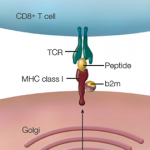 Multiple factors can influence the development of depression. In both the general population and patients with chronic disease, studies have shown that a history of depression is an important risk factor for future depression. In contrast, individuals who perceive they have control over things in their lives—a condition called mastery—tend to be resistant to depression. Generally, a higher sense of mastery is associated with better mental and physical wellbeing.1
Multiple factors can influence the development of depression. In both the general population and patients with chronic disease, studies have shown that a history of depression is an important risk factor for future depression. In contrast, individuals who perceive they have control over things in their lives—a condition called mastery—tend to be resistant to depression. Generally, a higher sense of mastery is associated with better mental and physical wellbeing.1
Research has also examined if factors specific to certain medical conditions can influence the development of depression in conjunction with the medical condition. Example: An analysis of patients with ankylosing spondylitis (AS) revealed that being employed was associated with better mental and physical wellbeing, as well as decreased depression.2
A recent study indicates that depression in AS patients is a result of both contextual and disease-related factors, similarly to depression in the general population. Casper Webers, MD, a rheumatologist at Maastricht University Medical Center, The Netherlands, and colleagues found a patient’s mastery plays a key role in depression in those with AS. The findings, published Oct. 21 in Arthritis Research & Therapy, support the use of self-efficacy in AS disease management and patient education.3
The investigators performed a cross-sectional study of a representative cohort of 245 Dutch patients with AS. The patients completed the Social Participation in Ankylosing Spondylitis Study (SPASS) surveys and Hospital Anxiety and Depression Subscale (HADS-D). The cohort had a median HADS-D score of 3, and approximately one-fifth of the patients had an HADS-D score greater than 8, indicating possible depression.
The researchers created an initial theoretical model of depression in AS based on biological plausibility and existing evidence. They took this baseline model and subjected it to two further specifications. They removed non-significant paths, such as age and alcohol use, and they explored indirect paths between contextual factors and disease-related factors in a step-by-step manner to determine if these factors could improve the model’s explanatory power.
The resulting, refined model indicated that having mastery, being male, being employed and having a history of depression were all directly associated with depressive symptoms. Other contextual factors associated with depressive symptoms were having a lower income, defined as an annual income of less than €40,000, and less satisfaction with social role participation as measured by the Social Role Participation Questionnaire.
The investigators performed a final iteration of the model and dropped the non-significant path from education to depression. They also added the indirect paths from the Bath Ankylosing Spondylitis Disease Activity Index, income and social role participation to depression via mastery. They found this last version of the model explained 64% of the variance in the latent depression outcome.

